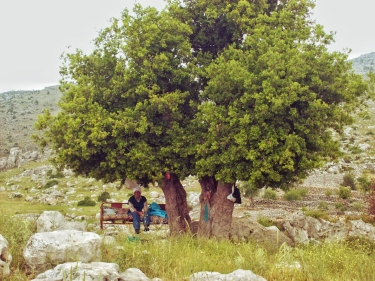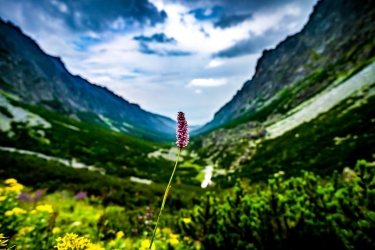Networks of trust – the foundation for wildfire management

Imagine having a team of chefs cooking Eggs Benedict. One of them has only ever made omelets; the other one has all the ingredients but no recipe. The third one knows how to do it, but they have been forbidden to cook anything else than scrambled eggs by the owner of the restaurant. On top of everything, they are not talking to one another because they are all competing for promotion. The outcome? You guessed it, anything but Eggs Benedict, the restaurant owner is enraged, and none of the chefs gets a promotion.
While the restaurant world is known to be fiery, the actual world of wildfires is straight up in flames. We have seen abnormally active fire season in 2019 in many countries. Poland had almost three times more fires compared to the 10-year average this year, Germany more than five times more, and France more than seven times more (EFFIS). The cherry on top was the United Kingdom, which had eight times more fires in 2019 than in the 10-year average. It was therefore fitting that the SURE project workshop (“pro-active fire management”) was organized back to back with the England and Wales Wildfire Forum’s (EWWF) Wildfire Conference from 20th to 22nd of November in Cardiff, Wales. The EWWF conference had more than 180 participants from 14 different countries, out of which almost 50 stayed to participate in the SURE workshop on the 22nd. The theme of the conference was “Manage the fuel – Reduce the Risk”. The speakers consisted of experts from practice and research, from fire and rescue services to forest administrates, and the topics varied from practical examples to the latest knowledge we have on wildfire behavior.
It turns out that the fire world has some similar issues as the three chefs. There are many actors involved in wildfire management with different skill sets, mandates and agendas. Problems arise when the different actors don’t know what the others are doing. The need for active communication across the different sectors, disciplines and countries was pointed out by many conference and workshop participants as a crucial requirement for successful fire management. And not only communication, also mutual confidence between the actors is essential. All this needs to be done before the fire is happening. In the words of Simon Thorpe, Chairman of EWWF: “When smoke is rising, it’s too late. Make friends before you need them.”
So what needs to be communicated? So many things! Climate change and the abundance of fuels have changed the fire dynamics in ways that in some cases we cannot predict their behavior anymore. “There is a small percentage of new types of fires that we cannot understand”, said Marc Castellnou from Pau Costa Foundation, “and these are the most destructive fires.” Even the fuels are changing. “Climate change is changing the chemistry of the plants, making them more flammable”, explained Andrew Scott from Royal Holloway University of London. The fire-adapted vegetation can cause a vicious loop, where the fire-prone species both burn and recover easier, out-competing the less fire-adapted species.
To understand these new types of fires and fuels, we need to increase the collaboration between scientists and fire fighters to get both more relevant data and direct the research to questions that fire fighters have. Dr Claire Belcher from University of Exeter stated that while researchers can study the burn patterns after the fire and model the burning behavior before the fire, they lack the proper monitoring during the fire. Rob Stacey from National Fire Chiefs Council commented that they need also fire ecologists in the field to understand the landscape.
We furthermore must learn from our colleagues in other countries. So far, the north has been spared from the similar tragic wildfires as in Portugal and Greece, but it could be only matter of time. According to Carlos Trindade, the Civil Protection Senior Officer from the Mafra county in Portugal, it is the responsibility of the North to learn from the South to avoid loss of human lives. However, it is not only the north that can learn from the south. For example, the coordination of actors in Norway or the organization of voluntary fire brigades in Finland could be also adopted in the south.

But how should we communicate then? The SURE workshop pondered on this question. Following the previous SURE workshops in order to compile a tool compendium, the motto for Cardiff was “pro-active fire management”. The benefits of this fire management approach are numerous while the practical implementation of these approaches however, facing hardships. The reasons for that are as simple as complicated: No or only little communication and cooperation between different authorities participating in landscape planning and fire management, public opposition or a lack of funds and leadership.
In Europe, there’s a lack of common terminology when it comes to wildfire. You have wildfire, forest fire, bushfire and landscape fire, and while these are similar, they also have differences. Furthermore, terminology related to fire can be different inside the same country. For example, in Poland the fire fighters look at the fire from the front whereas the foresters from the back. This means that when they are supposed to meet at the left flank of the fire, they end up being in the different sides. We need to increase our efforts to speak the same language to also have a wider impact outside the fire community.

The participants agreed that to achieve more active, efficient and engaging fire community, building up and maintaining networks by meeting and training together is of utmost importance. As our colleague Alexander Held from European Forest Institute pointed out in the last keynote of the conference: “We need to get to know each other in the first place, start to like and then trust each other in order to work efficiently together, or to say it in fire language: Trust is like lubrication for a network.”
So instead of competing for that promotion, the chefs could talk to one another, learn from each other and convince the restaurant owner that they are better as a team than individuals and should get the sufficient means to work as one. This would lead not only to happy customers, but to less fiery kitchen.
Again, the SURE team would like to thank the EWWF and all the participants for the excellent week!
Photo credit: Maria Schlossmacher


